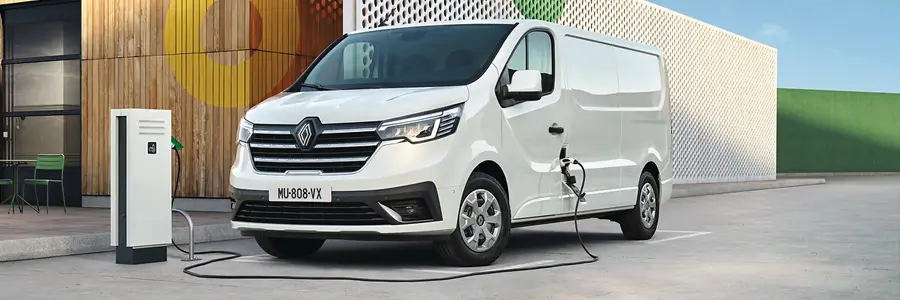The green mile in focus amid fight to decarbonise cities

Business owners are reviewing their approach to travel and delivering services in urban areas as a growing range of issues influence transport within city limits.
Experts say there has never been a better time to rethink approaches to business travel to benefit the environment, reduce costs and avoid delays.
From electrification to mobility solutions, everything is being considered in response to challenges for urban transport.
A report from the World Economic Forum estimates 60% of people will live in cities by 2030, which will increase congestion and pollution at the same time as demand grows for transport, goods and services. Local authorities are responding with a range of congestion charges, low emission zones and zero emission areas.
For many businesses, the initial response has been to adopt electric vehicles, with demand for zero-emission cars and vans soaring last year.
Sales of battery electric cars grew nearly 18% to almost 315,000 in 2023 and there are now around 1 million EVs on the road. Electric van sales jumped 21% last year to more than 20,000.
Organisations ranging from National Grid to the NHS are proving that zero carbon transport is a viable business choice and local authorities are rapidly decarbonising their entire fleets to meet Government targets.
A number of companies and local authorities are also implementing sustainable procurement policies, under which suppliers have to prove they are introducing measures to reduce their own environmental impact, including lowering emissions from cars and vans.
However, there is growing interest in alternatives that might maintain service levels while also tackling common problems facing city drivers.
For example, London telecoms company Vorboss has designed its own electric cargo bike to support teams in urban areas.
The move is intended to reduce the number of vans on the road in cities, cutting congestion and operating costs.
According to Cycling Electric, the business has initial plans to put 10 Vorspin bikes on the road.
The four-wheel bikes have an enclosed driver area with a secure cargo section complete with pull-out workspaces. The patented design took around nine months to design and build.
Analysis suggests running costs for electric cargo bikes are about £300 a year, including servicing and battery charging, a fraction of the cost of a van, although the costs of developing and building the bikes have not been revealed.
An indication of the initial investment involved in developing an effective cargo bike fleet can be seen in FedEx Express Europe’s new e-cargo bike scheme in London.
The fleet of eight electrically assisted four-wheel delivery bikes was developed in partnership with Electric Assisted Vehicles using a £150,000 grant from the Department for Transport’s Freight Innovation Fund.
Electric bike and van fleet combo
Each bike will run alongside the van fleet, with vehicles able to carry up to 170kg over 45 miles on a single battery charge.
A key benefit is their ability to avoid congestion, which is something that tempted estate agent Strutt & Parker to trial a new electric bike fleet in Oxford as an alternative to company cars.
And in the Vale of Glamorgan, the local authority is partnering with Sustrans on The Travel with Care project, in which the council is buying a fleet of 30 e-bikes for use as alternatives to vehicles.
However, a bid to encourage use of shared scooter and bike fleets in cities has had mixed results. In London, riders pay for millions of rides on shared bike fleets each year.
However, after Mobike scaled back its shared bike scheme in Manchester six years ago following a spate of vandal attacks, a new service has suffered a similar fate.
About 800 of the 1,000 bikes on the Bee Bikes network in Greater Manchester were reported as damaged or missing, leaving many of the scheme’s 64,000 active users unable to hire transport.
Rob Marshall, Operations Director, Gateway2Lease, said: “For most companies, cars and vans are still the vital lifeline that enables them to do business. Through the introduction of electric vehicles, small businesses can play their part in reducing emissions while investigating potential alternatives to alleviate any transport challenges they face in urban areas.
“It is important that delivery fleets think about their approach to urban areas - and whether that is electric cargo bikes or electric vans, we are happy to discuss the most appropriate choice for your business.”
View our latest blog posts

Categories
Pages
We are a family run business based in rural Worcestershire. Our team of 38 staff are on hand to provide an exceptional service to personal and business customers.
Read More
